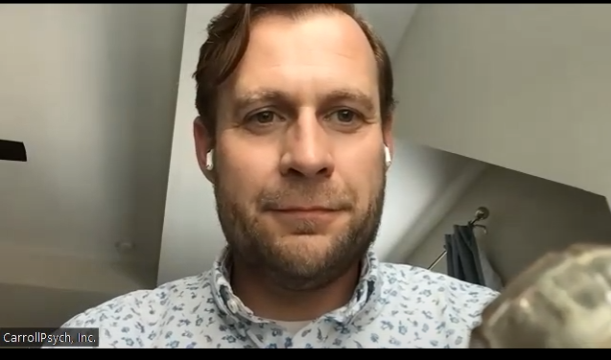I have spent more than a quarter century in some form of behavioral health. Most of that time was in community behavioral health, working with the most Severe and Persistently Mentally Ill (SPMI) population. This means people with illnesses such as schizophrenia, which can profoundly reduce their ability to function.
When I described my job to others, I often heard, “That must be really rewarding.” I used to joke that was code for “I am glad someone is doing that, because that job sounds really draining.” Perhaps there is some truth to that, but the statement itself was true: The job was rewarding.
As I am turn 50 this month, I find I have a different appreciation of my past work. Everything I have done has always had the purpose of helping others live the best life they could live. While I might not have been in direct service to clients, but I was running a clinic or an organization, or working on a project with that goal in mind. I have been blessed that my work has allowed me to serve others, to help in a small way to make their world better.
That is not always the case for others.
In today’s market, employees are looking for more than a wage. As unemployment has reached historic lows, paying more is not always the best way to obtain and maintain your workforce. Today’s employee is looking for meaning in what she or he does. This is not a “millennial” thing; the longing has always been there. The difference today is that it is being expressed.
You might believe most jobs do not have meaning, and while I will agree most may not have the same level of meaning as I have had the good fortune to experience in my career, some can be found in most jobs.
How much meaning can there be in drudge jobs, such as cleaning tables? For example, if you have ever been to a Chic-Fli-A, you see people whose work is service. At Chic-Fli-A workers see each task as a form of service to others. And you can sense that when you watch them at work.
What about being a “Sanitation Engineer” taking away the garbage? Is there meaning in that job? I would say yes, though perhaps we need to uncover it. Picking up the trash is a service to the people in the community. Without it, the community would quickly be overrun with garbage and all the problems that entails.
You can approach that job as a chore, or in the spirit of service.
If your work is on an assembly line it can have meaning. If I am welding a car frame, those frames are going to carry people around as they live their lives. I can choose not to care and do a poor job, or I can choose to see it as a service. If I do a good job, owners will have a better product, be happier, and be safer.
As a CEO, I treasured my executive assistant because her work freed me to focus on serving the organization.
As leaders, we need to understand the service inherent in our jobs, and the jobs of those working for us. Help them understand and appreciate how the core definition of service can apply to what they do.
And remember, “That must be really rewarding,” is something all of us would like to hear.
Bryan G. Stephens is a former executive on a mission to transform the workplace. He is the founder and CEO of TalkForward, a consulting and training company, utilizing Bryan’s clinical and management expertise to develop managers and teams in a corporate environment. As a licensed therapist with strong understanding of developing human potential, he is dedicated to the development of Human Capital to meet the needs of leaders, managers, and employees in the 21st Century workplace.
Bryan has an Executive MBA from Kennesaw State University, Coles School of Business, and both a Master’s and Bachelor’s degree in Psychology.






